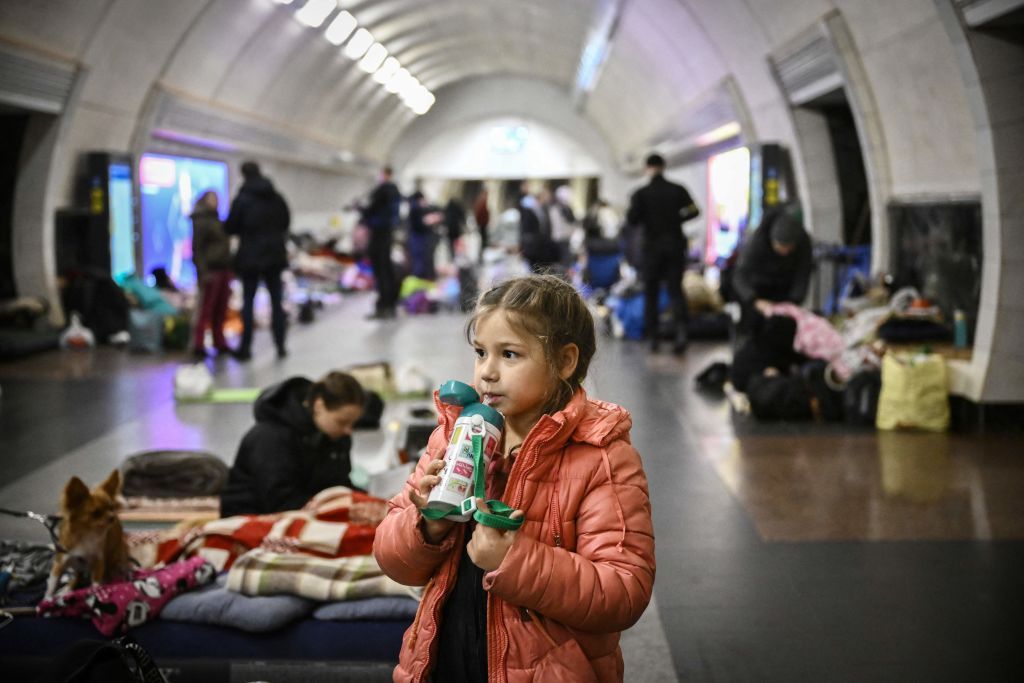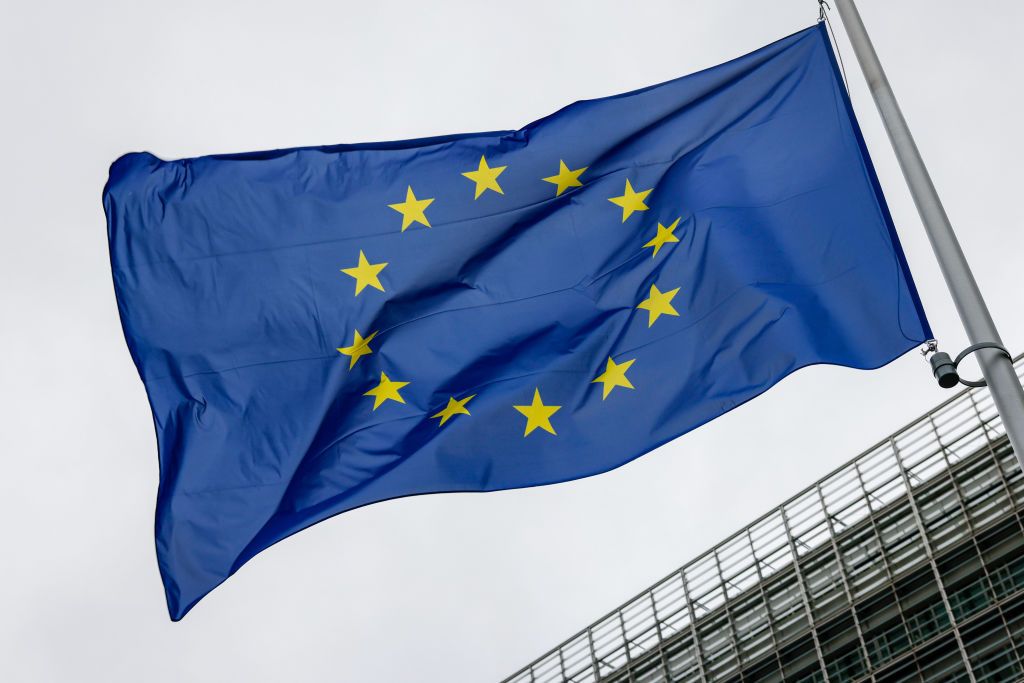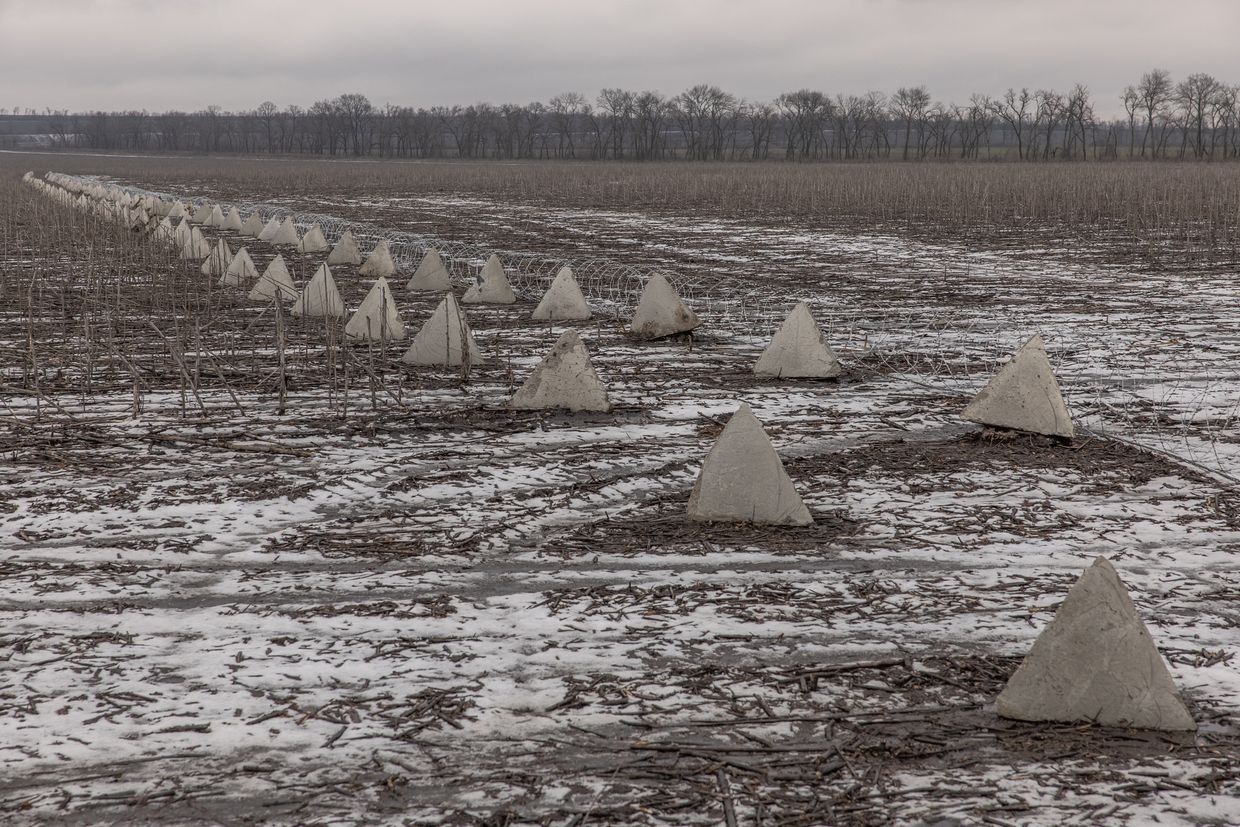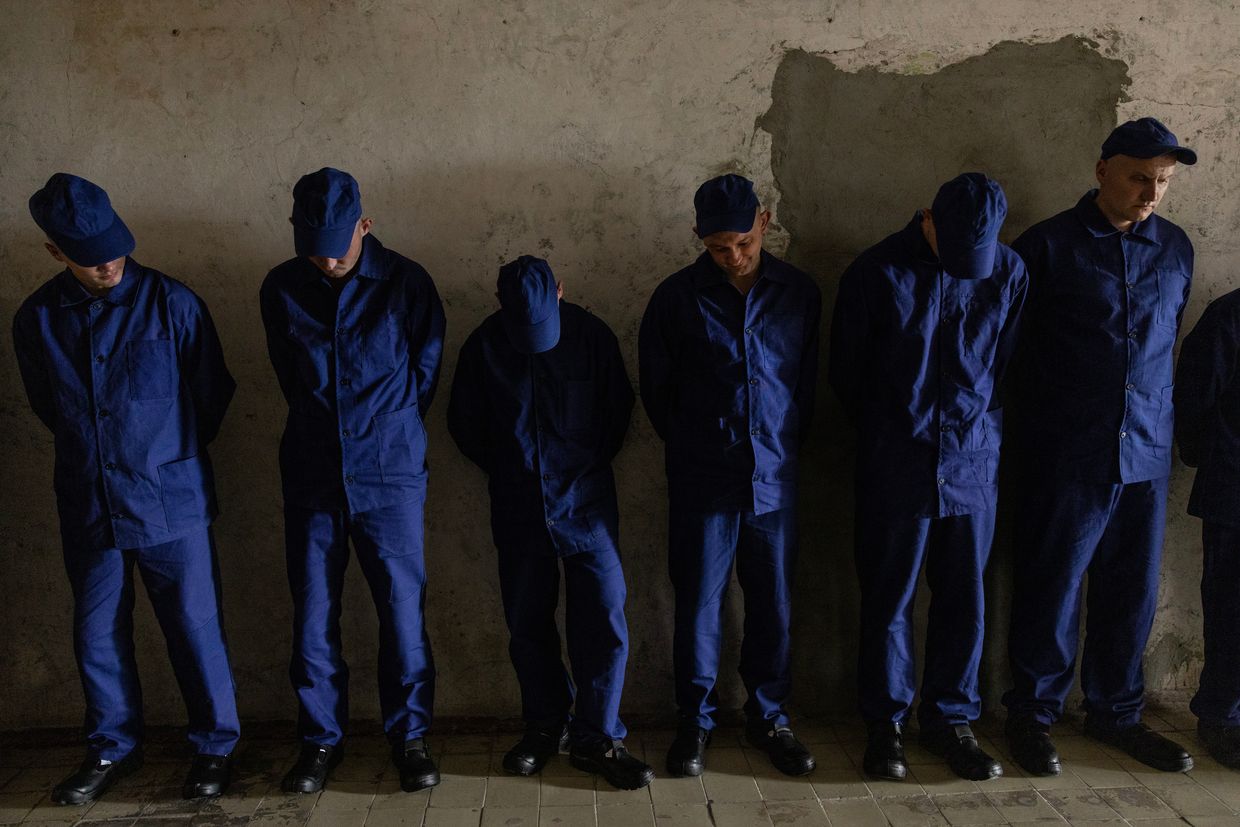Ukraine war latest: Ukrainians should prepare for possible power outages, energy minister says

Key developments on April 12:
- Energy minister says Ukraine's energy system stable, urges citizens to prepare for 'any scenarios'
- Bloomberg: Ukrainian army collapse 'cannot be ruled out,' US official says
- Netherlands allocates additional $1.5 billion in aid for Ukraine
- Ukraine additionally allocates close to $100 million for fortifications
- Military intelligence: Russia sending units from Far East to replenish losses in Ukraine
Energy Minister Herman Halushchenko said on April 12 that Ukrainians should be prepared for possible power outages in the spring or summer amid ongoing Russian attacks against energy infrastructure.
Moscow has recently intensified its missile and drone strikes against Ukraine's critical infrastructure, destroying several thermal power plants across the country, including the Trypillia plant, the main electricity supplier to Kyiv, Zhytomyr, and Cherkasy oblasts.
In March, attacks reportedly damaged or completely destroyed 80% of the thermal generating capacity of DTEK, Ukraine's largest private energy company.
Ukraine's energy system is currently undergoing the largest-scale series of attacks by Russia, according to Halushchenko. Over the past three months, Russia has reportedly conducted around 30,000 strikes on Ukrainian territory.
Nevertheless, Ukraine's energy system "is working steadily" despite a series of Russian attacks, the minister said on national television.
A possible shortage of power capacity depends on the impact of further Russian strikes on Ukraine's energy system, according to Halushchenko.
When asked about possible blackouts in the autumn of 2024, Halushchenko answered that it was worth buying generators and power banks.
"Buy them (generators and power banks), get ready. But we will do everything we can to ensure that you do not need them," Halushchenko said.
Back in early October 2022, Russia launched a months-long series of missile and drone attacks against Ukraine’s energy infrastructure, leading to blackouts amid freezing temperatures and reportedly damaging half of the country’s energy system.
Bloomberg: Ukrainian army collapse 'cannot be ruled out,' US official says
The possibility of Ukraine's army collapse "cannot be ruled out" and Ukraine is at its "most fragile moment in over two years of war," according to U.S. officials, Bloomberg reported on April 11.
Ukraine's position on the battlefield has been weakened in recent months by a dire shortage of ammunition, exacerbated by an ongoing impasse in Congress over U.S. aid to Ukraine.
President Volodymyr Zelensky said in an interview with CBS News that a new major Russian offensive may come at the end of May or in June.
According to the U.S. official, who spoke to Bloomberg on condition of anonymity, the U.S. "doesn't see any signs of an imminent breakthrough by Russian forces."
Ukraine is, however, at its "most fragile moment in over two years of war, according to Western officials with knowledge of the situation," Bloomberg said.
Meanwhile, Russia has largely replaced its heavy battlefield losses in Ukraine, and at a much faster pace than anticipated, U.S. General Christopher Cavoli warned on April 11.
"Russia is reconstituting that force far faster than our initial estimates suggested," Cavoli wrote in a statement to Congress. "The army is actually now larger — by 15 percent — than it was when it invaded Ukraine."
A key risk is a collapse of Ukraine's defenses, which would give Russia an "opening to make a major advance for the first time since the initial stages of the conflict," Bloomberg said, citing talks with multiple officials.
Netherlands allocates additional $1.5 billion in aid for Ukraine
The Netherlands has allocated an additional one billion euros ($1.1 billion) in military aid and 400 million euros ($425 million) for reconstruction, President Volodymyr Zelensky said on April 12 after a phone call with Dutch Prime Minister Mark Rutte.
Under Rutte, the Netherlands has taken a proactive role in supporting Ukraine, spearheading the fighter jet coalition and pledging to deliver 24 F-16 jets to Ukraine.
Zelensky said that the new aid batch was provided in the framework of the 10-year bilateral security agreement between the states, signed on March 1 in Kharkiv.
"Thank you to Mark, thank you to the Dutch people! This is an exemplary case of supporting Ukraine," the president wrote on his Telegram channel.
On the call, the parties discussed further Ukrainian-Dutch cooperation in speeding up the delivery of artillery shells, ammunition, and air defense by allies to Ukraine, as well as in the upcoming global peace summit, the next edition of which Switzerland will host in June.
Zelensky also invited the Netherlands to the summit and thanked it for the "efficient" Restoring Justice for Ukraine conference held on April 2 in The Hague.
The Dutch broadcaster RTL news earlier reported on April 11 that the Netherlands would allocate an additional 400 million euros ($425 million) to Ukraine, increasing its total pledge for 2024 to more than 2.4 billion euros ($2.5 billion).
Amsterdam also recently pledged 10 million euros ($10.8 million) to help Ukraine investigate Russian war crimes. New financial assistance was announced during the Restoring Justice for Ukraine event in early April.
Ukraine allocates close to $100 million for fortifications
The government has allocated an additional Hr 3.88 billion (almost $100 million) for the construction of fortifications, Prime Minister Denys Shmyhal said on April 12.
Around Hr 1.7 billion ($43 million) will be devoted to building up defenses in Kharkiv Oblast and Hr 1.5 billion ($38 million) to Sumy Oblast. Additional funds will also be provided to Donetsk, Kherson, and Mykolaiv oblasts, Shmyhal said.
The Ukrainian authorities have faced criticism for slow progress on fortifying defensive lines. In March, President Volodymyr Zelensky announced that Ukraine was building 2,000 kilometers of fortifications across three lines of defense, adding that the "task is massive, but the pace is good."
The Ukrainian government has already allocated Hr 20 billion ($512 million) for building fortifications in 2024, Shymhal said in January.
Earlier this month, the government allocated an additional Hr 5.6 billion ($143 million) to fortify Donetsk, Kherson, Zaporizhzhia, Mykolaiv, and Sumy oblasts.
The Wall Street Journal (WSJ) reported that Ukrainian troops are building fortifications in expectation of a Russian offensive in the spring, though there are concerns that the progress is not fast enough.
President Volodymyr Zelensky said in an interview with CBS News that a new major Russian offensive may come at the end of May or in June.
Military intelligence: Russia sending units from Far East to replenish losses in Ukraine
Russia is sending troops from the far eastern military units, including its Pacific Fleet, to replenish personnel losses in Ukraine, Ukraine's military intelligence (HUR) said on April 12.
Russia has lost 451,730 troops fighting in Ukraine since Feb. 24, 2022, according to the April 12 update from Ukraine's General Staff. The figure indicates the number of Russian fighters who have been killed or injured and are unable to return to active duty.
The BBC's Russian service, along with the Russian independent media outlet Mediazona, confirmed the identities of more than 50,000 Russian soldiers killed in Ukraine earlier in April. The true death toll is thought to be much higher.
Moscow is now deploying the personnel of the Pacific Fleet and the 11th Army of the Air Force to replenish its losses in Ukraine, as well as to staff new military units, HUR said.
The Pacific Fleet and 11th Army of the Air Force "were not previously directly involved in hostilities against Ukraine," according to HUR.
The commander of the Pacific Fleet has reportedly stopped rotations to Syria and instead is sending around 2,000 personnel from Russia's Far East to Ukraine.
Another 400 soldiers from the 11th Army will "patch up the holes of the 155th and 40th brigades of the Russian marines, which are fighting against Ukraine and are undermanned due to huge losses," HUR said.
The soldiers are currently stationed in the city of Khabarovsk, which lies around 6,500 kilometers from Ukraine on Russia's border with China.
According to HUR, some personnel from the far eastern military units "will join the new motorized rifle brigade of the aggressor state, which is being formed in Voronezh," a city located less than 200 kilometers from the border with Ukraine.
U.S. General Christopher Cavoli said on April 11 that Russia has largely replaced its heavy battlefield losses in Ukraine, and at a much faster pace than anticipated.
"Russia is reconstituting that force far faster than our initial estimates suggested," Cavoli wrote in a statement to Congress. "The army is actually now larger — by 15 percent — than it was when it invaded Ukraine."
Russia's military has bolstered its numbers through a partial mobilization conducted in the fall of 2022, which many believe has continued in a more concealed manner since.
It has also brought prisoners, migrants, and foreign nationals into its ranks.
















